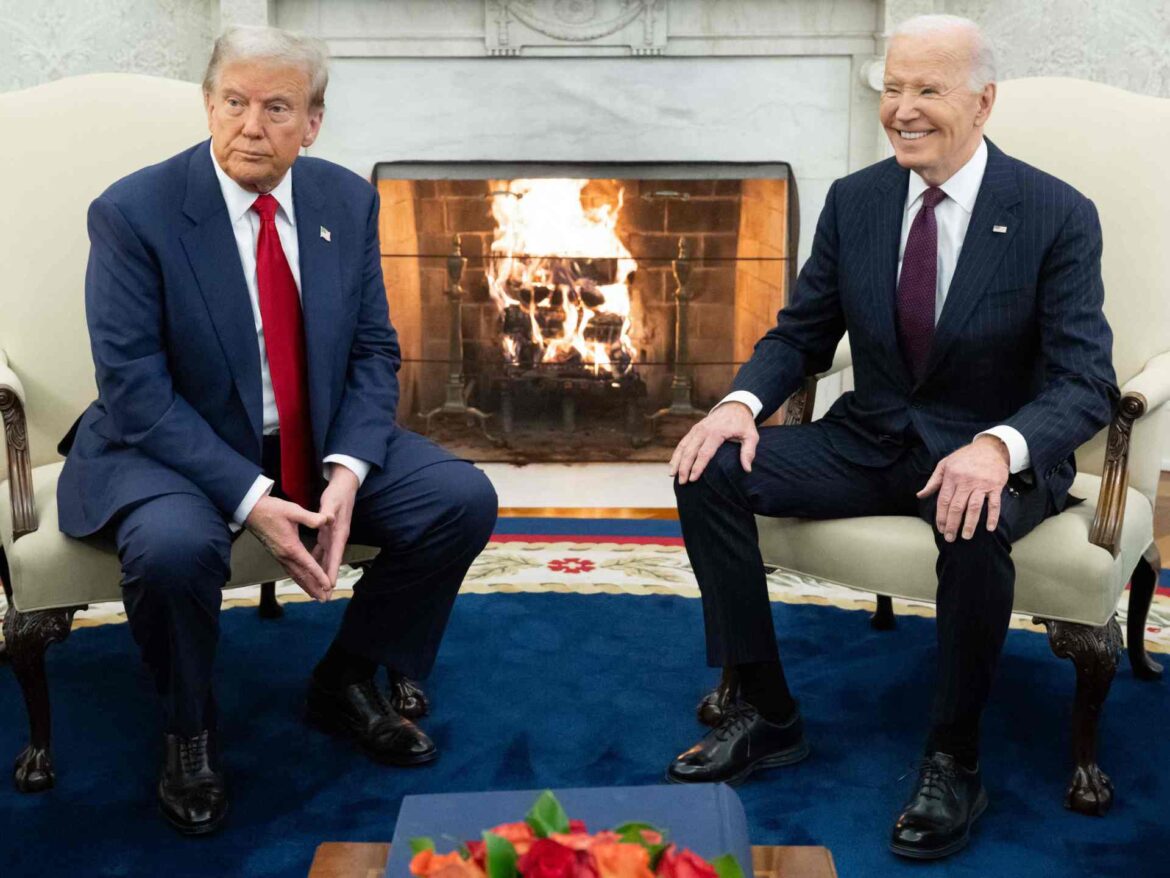Tel Aviv Tribune Net correspondents
WashingtonWith the end of his office approaching, US President Joe Biden is looking forward to improving his presidential legacy by reaching a ceasefire in the Gaza Strip that would lead to the release of the remaining detainees held by Hamas, and handing over the Middle East to his successor, Donald Trump, paving the way towards a broader regional settlement.
Biden hopes to use the ceasefire in Lebanon to build momentum in efforts to stop the war in the Gaza Strip before leaving office.
In announcing a ceasefire between Israel and Hezbollah, Biden said that “in the coming days, the United States will make another push with Turkey, Egypt, Qatar, Israel and others to achieve a ceasefire in Gaza with the release of hostages and an end to the war without Hamas in power.”
Will Biden do it?
Since reaching an agreement to temporarily stop the fighting and release nearly half of the hostages and detainees in November 2023, ways to reach a ceasefire and release the remaining hostages have been hampered, at a time when the Biden administration’s full and unconditional support for Israel has not been shaken.
It seems that the martyrdom of the leader of the Islamic Resistance Movement (Hamas), Yahya Sinwar, at the beginning of last October, gives it an opportunity to reach an agreement to stop the fighting in Gaza.
The indicators issued by the White House do not suggest any change in the position of the Biden administration, which blames Hamas for not reaching a ceasefire so far.
In response to a video of Aidan Alexander, a Hamas detainee, who holds American citizenship in addition to his Israeli citizenship, US National Security Council spokesman Sean Savitt said, “The war in Gaza will stop tomorrow and the suffering of the people of Gaza will end immediately, and it would have ended months ago, had Hamas agreed to Release the hostages.”
“I refused to do so, but as the president said last week, we have a critical opportunity to conclude an agreement to release the hostages, stop the war, and increase humanitarian aid to Gaza. That deal is on the table now,” Savit added.
Before Trump’s inauguration
It is not yet clear how much of a priority the Gaza crisis will be when the president-elect takes office. Trump called during his election campaign for a quick end to the war, and recently told Israeli Prime Minister Benjamin Netanyahu, “You have to end it and do it quickly.” He added, “Get your victory and get through it.” The war must stop, the killing must stop.”
The Biden team communicated with the Trump team repeatedly after the two presidents met at the White House two weeks ago, where they discussed ways to reach an agreement on Gaza that would stop the fighting and release the hostages. Subsequently, the issue was raised during a meeting between Jake Sullivan and Trump’s incoming national security adviser, Representative Michael Waltz, and in a conversation between Biden’s senior Middle East adviser Brett McGurk and Trump’s Middle East envoy Steve Witkoff.
Meanwhile, Republican Senator Lindsey Graham, who has just returned from a quick visit to Israel and Saudi Arabia, said that Trump wants to end the fighting in Gaza and release the hostages before he enters the White House on January 20.
Speaking to Axios, Graham confirmed that Trump is pushing for an end to the killing in the war between Israel and Hamas so that he can focus on normalizing relations between Israel and Saudi Arabia, among other goals of his foreign policy, according to Graham.
Gaza is different from Lebanon
Despite some optimism in American circles, there are doubts about the possibility of reaching the goal of stopping the fighting in Gaza, especially after the Biden team, headed by Secretary of State Anthony Blinken, National Security Advisor Jake Sullivan, and his aides John Finner and Brett McGurk, were devoted to foreign policy, along with the director of the agency. CIA, William Burns, for most of the last year without any success.
Despite the notion that a ceasefire in Lebanon could lead to a ceasefire with Hamas, some military experts argue otherwise. Daniel DePetris, an expert at the Center for Defense Priorities, wrote on the X website, explaining that Gaza is radically different from Lebanon in several aspects, the most important of which is the lack of Israeli hostages held by Hezbollah.
He said, “Hezbollah did not have any Israeli hostages in its custody. This made the negotiations easier. Hamas, of course, has dozens and dozens of hostages and is not prepared to release them until its conditions are met, a complete Israeli withdrawal from Gaza and a permanent end to the war. These are the demands that Netanyahu does not want to meet them.
DePetris added that Hamas’ strategy does not depend on Hezbollah, and the ceasefire in Lebanon is unlikely to change Netanyahu’s calculations.
Meanwhile, Joe Trosman, an expert at the Organization for Defense of Democracies, known for its closeness to Israel, noted that “despite Hamas’s apparent renewed interest in reaching a ceasefire agreement, there is no indication that their offer differs from what they previously announced.”
Since the beginning of the war, Hamas has expressed interest in reaching an agreement, but the crux of the matter, according to Trosman, lies in the fact that “such a deal must be consistent with its terms. Central to their demands is the withdrawal of the Israeli army from Gaza, a step they consider necessary to ensure the survival of Movement and its renewal in the future.



